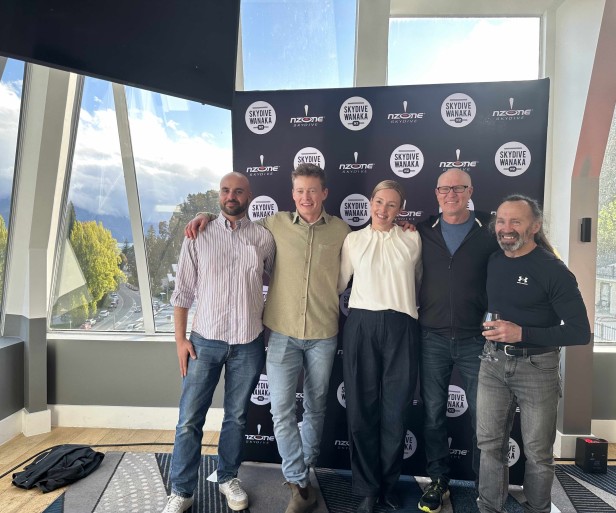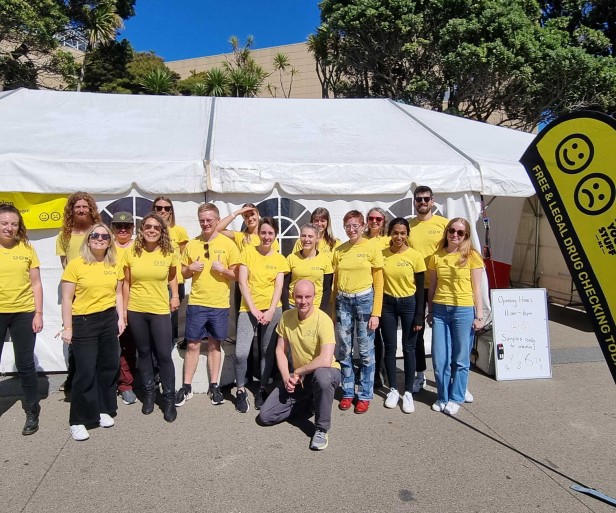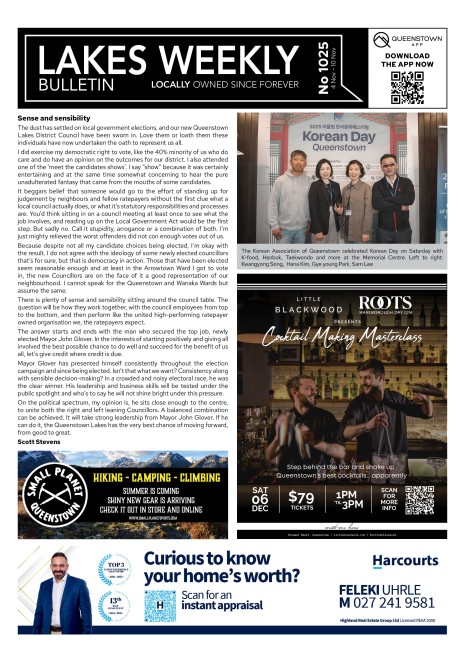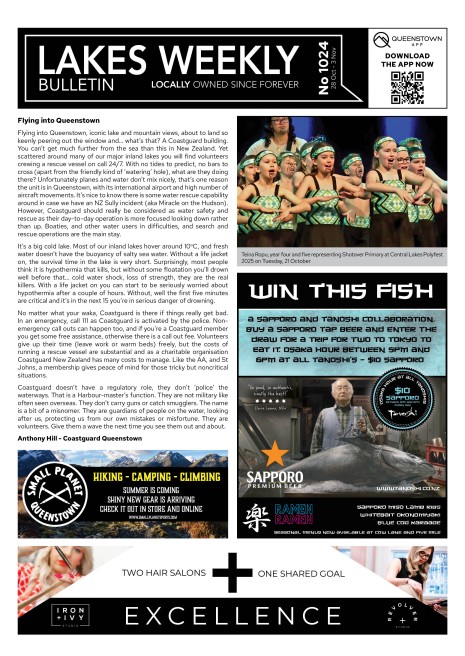Technology Queenstown launches $1b plan

A plan to transform Queenstown Lakes' growing tech sector into a billion-dollar industry has been unveiled by newly-established technology development agency, Technology Queenstown (TQ).
The agency released a detailed economic analysis that reveals creating a world-class niche tech ecosystem could generate around $1billion in annual GDP, or 10-20% of the local economy by 2043.
Established by experienced tech sector Chair and advisor Roger Sharp, TQ is a not-for-profit bringing together Queenstown Lakes District Council, the University of Otago, the Ministry of Business, Innovation and Employment and Queenstown Resort College.
Their shared vision is to drive diversification of the local economy with a strategic plan that will develop its technology industry.
According to the analysis by a global professional services company, over the next 20 years Queenstown Lakes has the potential to deploy around 3,000 highly skilled tech workers and boost the district’s tech ecosystem from $100 million to between $650 million and $1.3 billion.
TQ has been formed for the express purpose of maximising this opportunity.
Founder Roger Sharp: "The launch of Technology Queenstown and the economic analysis that underpins our strategy marks a significant milestone in realising our vision for a more diversified economy in the Queenstown Lakes District.
"The pandemic shone a light on the region’s heavy reliance on the tourism and hospitality sectors and the pressing need to build other industries alongside tourism, so the region is better prepared for the future.
"Technology is a high-value, low-impact industry that fits comfortably alongside Destination Queenstown’s ambitious strategy to achieve a carbon-zero tourism environment over the next few years.
"Our goal is to create a rising tide for all boats on the lake. For that to occur someone needs to step up with a unified vision, speak for the industry and catalyse change."
TQ will work within the existing Queenstown economic development ecosystem, alongside Destination Queenstown (DQ) and Study Queenstown (SQ).
Queenstown Lakes Mayor Glyn Lewers welcomed the news.
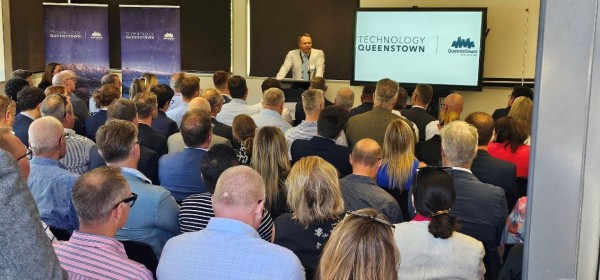
Mayor Glyn Lewers speaks at TQ launch
"Opportunities for all is one of the long-term goals our community is working towards, and a vibrant tech industry is key to achieving this, Lewers says.
"QLDC is proud to have supported the team behind TQ and we see the strategy as an important part of our economic diversification programme.
"The release of this plan and the commitment of private sector leaders to achieving it is an exciting step towards realising this vision."
Queenstown Resort College (QRC) CEO, Charlie Phillips, says a dedicated agency is exactly what’s needed to propel Queenstown’s tech sector forward and create new opportunities for people in the region.
"A year ago, we launched a machine learning school to help diversify the regions’ tourism-dependent economy, which has been a huge success.
"Since then, QRC has grown our offering in specialty fields including machine learning, AI, data analytics and cloud computing, so students can stack together micro credentials in emerging technology areas towards industry-relevant qualifications.
"Our college offers programmes that align closely with Technology Queenstown’s vision, building a pipeline of talent who are work-ready for the fast-moving tech sector.
“Graduates from our programme will be in-demand, and It’s only a matter of time before top businesses recognise Queenstown’s talent pool and see the benefits of establishing a presence here."
Professor Richard Blaikie, Deputy Vice-Chancellor Research and Enterprise at the University of Otago, says the university is excited to support the plans.
He acknowledged the key role the University will have to play in research and innovation that will lead to new jobs in the district.
"We already have a strong footprint in Queenstown through a number of initiatives and in 2022 our Council strengthened its partnership with the district through the launch of a Central Otago and Southern Lakes strategic framework.
"This independent report will help inform the University as to what we might do in future in relation to this project.”



